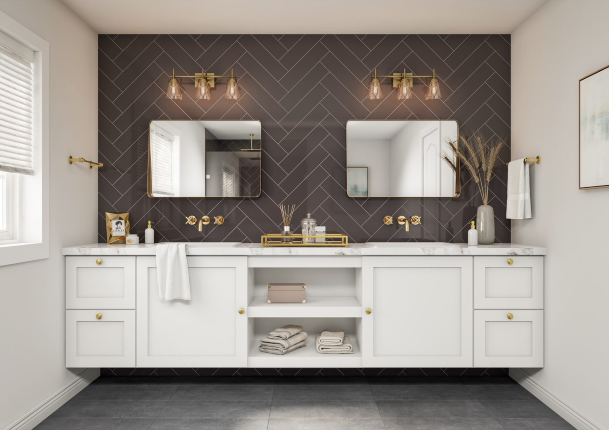
What is Porcelain?
Porcelain is a durable material made by combining various clay materials through a heating process. Due to the high temperatures of this process, countertops using porcelain are known to be resistant to heat, scratching, and cracking.What is Granite?
Unlike porcelain, which is a combination of materials mixed together, granite countertops are made from a natural stone that goes through a three-step process:- Cutting into slabs
- Polishing
- Fabrication
Porcelain and Granite Comparisons
Like all choices, you’re going to have your pros and cons with each option, but it merely comes down to your personal preference of design and functionality. Let’s take a look at what porcelain and granite have to offer so you can make an informed decision for your remodel.Durability
While both granite and porcelain are very durable, porcelain is the easy victor here. Thanks to the clay material being heated at such high temperatures, the structure is extremely dense. Granite is resistant to heat and scratches, just like its competitor, but if you’re looking for the strongest choice, porcelain will be great for your bathroom.Water-Resistance
From brushing your teeth to taking a shower, there’s a lot of water usage in bathrooms. So, you’re going to want a countertop that can handle water splashing all over the place. Porcelain is known to be non-porous, meaning liquids are unable to penetrate it easily. On the other hand, since granite is a natural stone, its porous nature does not keep water and other liquids out. Upon installation of the countertop, it will need to be sealed, then resealed at least once per year.Maintenance
Easy maintenance is something many people strive for to save them from difficult upkeep. If this is your goal when choosing a new bathroom countertop, you’ll probably want to choose porcelain. Thanks to the non-porous structure, you typically won’t have to worry about stains in contrast to granite. Granite should be cleaned with soap and water daily, but you have to be careful about which products you use to prevent staining. Porcelain should still be cleaned regularly to avoid bacteria buildup, but it’s as simple as wiping it down with some warm water.


